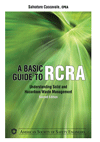 Environmental Protection Agency (EPA) Administrator Lisa P. Jackson today defended her agency’s regulatory process in testimony before the U.S. House Subcommittee on Oversight and Investigations.
Environmental Protection Agency (EPA) Administrator Lisa P. Jackson today defended her agency’s regulatory process in testimony before the U.S. House Subcommittee on Oversight and Investigations.
“Some would have us believe that “job killing” describes EPA’s regulations,” Jackson commented. “It is misleading to say that enforcement of our nation’s environmental laws is bad for the economy and employment. It isn’t.
“But let me be clear: the core mission of the EPA is protection of public health and the environment. That mission was established in recognition of a fundamental fact of American life – regulations can and do improve the lives of people. We need these rules to hold polluters accountable and keep us safe.”
She called the Clean Air Act one of the most successful environmental laws in American history, and pointed out that in the four decades since it was passed, the Gross Domestic Product of the United States grew by more than 200 percent.
In 2010, Jackson said the Clean Air Act Amendments of 1990 were estimated to have saved over 160,000 lives; spared Americans more than 100,000 hospital visits; and prevented millions of cases of respiratory problems.
“Few of the regulations that gave us these huge gains in public health were uncontroversial at the time they were developed. Most major rules have been adopted amidst claims that they would be bad for the economy and bad for employment.
“In contrast to doomsday predictions, history has shown, again and again, that we can clean up pollution, create jobs, and grow our economy all at the same time.”
Jackson said regulations should be guided by science, must be not create undue burdens and must weight both the benefits and the costs. “However, in doing so, we must not lose sight of the reasons for implementation of environmental regulations: These regulations are necessary to ensure that Americans have clean air to breathe and clean water to drink. Americans are no less entitled to a safe, clean environment during difficult economic times than they are in a more prosperous economy.”
She referred to Executive Order 13563, which includes a directive for federal agencies to develop a regulatory retrospective plan for periodic review of existing significant regulations. Under that directive, the EPA has developed a plan which includes 35 priority regulatory reviews. Jackson estimated that recent reforms, already finalized or formally proposed, will save up to $1.5 billion over the next 5 years.
Although President Obama recently warned Congress, “…what we can’t do…is let this economic crisis be used as an excuse to wipe out the basic protections that Americans have counted on for decades,” he’s come in for criticism from health advocacy and environmental groups for his decision to delay a new national air quality standard for ground level ozone. See story on www.ishn.com.








